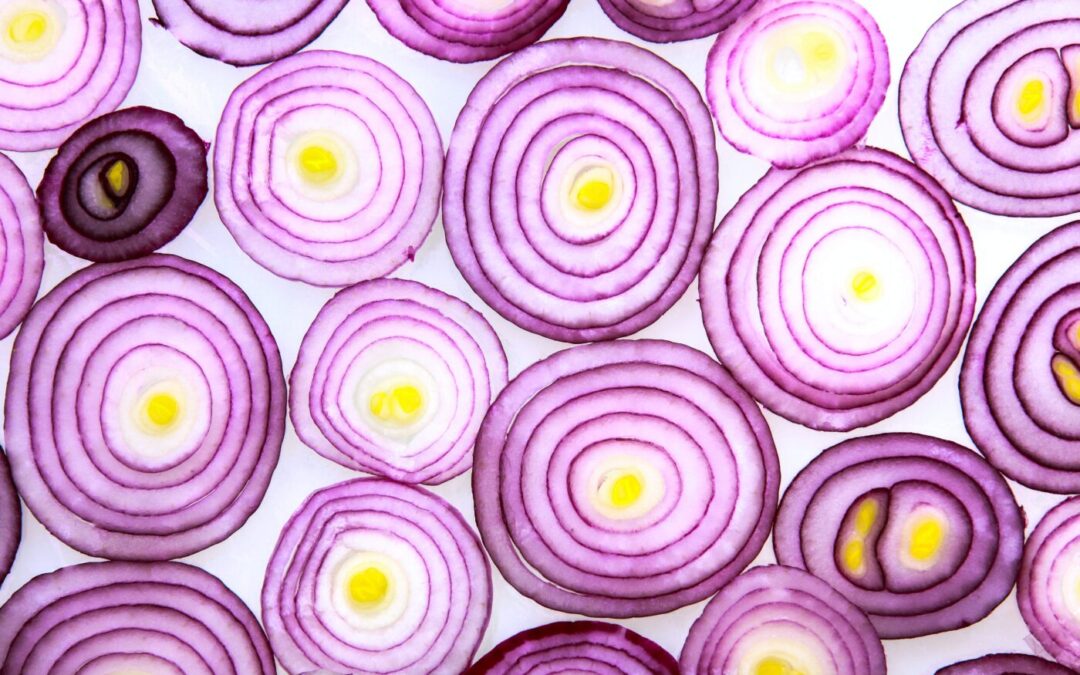Since 2020 there is probably not a person left who hasn’t heard about quercetin and its benefits in fighting viral infections. Before that it had been used as a natural anti-histamine to alleviate allergic reactions.
What is quercetin?
Quercetin is a pigment that adds colour to many fruits and vegetables. It’s found mainly in the skins and leaves of plants. Light stimulates the production of quercetin, so an apple at the top of a tree may have more quercetin than one that doesn’t get direct sunlight. Isn’t that amazing! And then we need to think about nutrients content in organic vs pesticide-laden produce. But that is a whole different blog post.
Quercetin is referred to as either a phytochemical, polyphenol, or flavonoid. Quercetin is a very powerful antioxidant, which means that it helps fight free radicals. Free radicals are molecules that contain unpaired electrons. Because electrons naturally want to pair up, free radicals roam around the body, pulling electrons away from other molecules. This process can damage cells and DNA.How does quercetin help reduce DNA damage? It pairs up with the single electrons of free radicals, so they can no longer cause damage.
The benefits of quercetin:
- Support of the cardiovascular system by lowering blood pressure and cholesterol and relaxing blood vessels; quercetin can improve men’s sexual health as it may improve issues with reduced blood flow, which can cause erectile dysfunction.
- Improved circulation improves brain health as well. But quercetin can protect the brain in other ways, too. It may reduce inflammation and protect brain cells from toxins. Its antioxidant powers could lower the risk of Alzheimer’s disease and other degenerative diseases of the brain.
- Quercetin may slow down tumour growth and generally reduce the risk of cancer by combating free radicals. A few studies have targeted quercetin and in one, it showed slowed tumor growth; in another, it lowered the risk of lung cancer; the third was a lab study, which found that quercetin had the ability to attack leukemia cells.
- And the most known quercetin use in naturopathic circles – antihistamine. Quercetin has been proven to drive down the histamin response and help with allergic reactions.
Do I recommend quercetin supplements? In critical cases – yes, they help a lot! But taking them on an ongoing basis as a “preventive” measure – a definite no from me. In the latter case querceting-rich foods should be used.
Quercetin-rich foods:
- capers (most concentrated source!)
- red onion (highest vegetable source!)
- shallots
- red apples
- grapes
- berries
- cherries
- scallions
- kale
- tomatoes (organically grown tomatoes have up to 79% more than conventional fruit)
- broccoli
- Brussels sprouts
- cabbage
- citrus fruits
- bell peppers (green and yellow)
- nuts (almonds and pistachios)
- asparagus (cooked has slightly more)
- buckwheat
- black tea
- green tea
- elderberry tea
The best plan is to include a variety of quercetin-rich foods, like capers, red onions, kale, and organic tomatoes, in your regular diet. If you’re considering taking a quercetin supplement, check in with your practitioner first to make sure it’s right for you and establish the right therapeutic dose for you.

